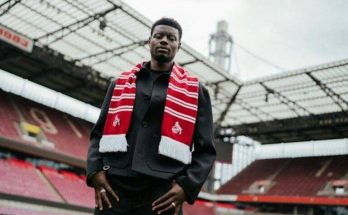This is one of those Saturdays in college football you circle in red — like two heavyweight entertainers stepping into the ring. At 3:30 PM ET on ABC (and the ESPN App), undefeated Ole Miss, led by the mercurial Lane Kiffin, makes the road trip to Athens to take on Kirby Smart’s Georgia. The stars align not just in rankings — No. 5 vs No. 9 — but in storylines, personalities, schemes, redemption, and legacy. Let me walk you through why this is more than just a game.
Lane Kiffin, with that quick wit and swagger, has always been polarizing — you either love him or love to hate him. He’s built a reputation as an offensive innovator, a recruiter who courts edge, and a guy unafraid of big statements or big risks. His résumé is eclectic: he’s been head coach in college and the NFL, coordinator at powerhouse programs, and he’s often been criticized for being opportunistic or strolling into controversies. But what stands out is that where he lands lately, he tends to make things interesting.
At Ole Miss, Kiffin has brought a renewed energy and expectation. He’s turned the Rebels into a real contender in the SEC West, a place where historically they’ve often lurked in the shadows of powerhouses like Alabama and LSU. He’s not just showing flashes — Ole Miss under him is trying to be a contender, week in and week out. This season, they’ve navigated some bumps (including a close call against Washington State) but remain unblemished. (Red Cup Rebellion)
The weaponry he has is compelling: a potent offense, playmakers who can stretch defenses, aggressive calls, tempo, and the kind of creative wrinkles that separate a run‑of‑the‑mill offense from something defenses really must prepare for. But the risk is also there: let the O line slip, let penalties creep in, let turnovers spiral, and suddenly your “cool offense” becomes one-dimensional or erratic.
On the other sideline, Kirby Smart offers a contrast in temperament, approach, and legacy ambition. Smart is more of a program architect — meticulous, defensive-minded, and focused on building something persistent and dominant. Since taking over at Georgia in 2016, he has elevated the Bulldogs from a respected SEC program into a national powerhouse. Under Smart, Georgia has won multiple SEC championships and back‑to‑back national titles (2021, 2022) and has become known for its physical defense, strong recruiting in the Southeast, and steady consistency. (Wikipedia)
Smart is not flashy in the same way as Kiffin — he’s not out there trolling or making headlines for offbeat comments (at least not often). But he emphasizes process, discipline, and doing the little things. Georgia under Smart tends to be balanced: strong upfront, relentless on defense, opportunistic on offense. If there’s a way to win a slog, Smart will find it.
One of the intriguing elements entering this game is how these contrasting philosophies matchup. Kiffin wants to make you uncomfortable — speed, motion, attacking mismatches, verticals, tempo changes. Smart wants to slow you, make you earn everything, force you to beat him in gritty fashion. When they clash, you see which style is ascendant in that moment.
Another subplot: revenge and narrative. Last season, Ole Miss went into Athens and turned heads. The Rebels beat Georgia 28–10 on the road. That was no fluke. That result adds fuel to Ole Miss’s confidence and gives Kiffin a “you saw it once, we can do it again” vibe. For Georgia and Smart, it’s a chance to reclaim dominance at home, to show the Bulldogs are still among the elite, and to silence doubters who say Georgia is no longer “the team to beat” in the SEC East (or the nation). For Smart, every season has a threshold: reach the playoff, win the SEC, compete for national titles. A loss here would sting not only in the standings but in perception.
The stakes are high: Georgia wants to reassert itself, avoid early cracks in its resume, dominate at home, and show it’s still a title-caliber team. Ole Miss wants to keep the perfect streak alive, prove that what they’ve built is sustainable, and that Kiffin can beat the big dogs on their field, under pressure, in prime time.
Supporters of both sides will talk matchups: how Ole Miss’s passing game fares against Georgia’s aggressive secondary, how Ole Miss handles Georgia’s defensive front, how well Georgia’s offense can stretch a Rebels defense primed to give up chunk plays. Will Georgia’s offensive balance and physical running game control the line, wear down Ole Miss, and keep them off rhythm? Will Kiffin find seams, get creative, and exploit angles? How disciplined will both teams be? How many self-inflicted errors will kill drives or momentum?
Coaching adjustments will matter. Kiffin is notorious for making halftime tweaks, flipping his gameplan midstream, inserting counterpunches. Smart, too, is excellent at adjusting defenses, changing coverages, disguising fronts. This likely won’t be a static matchup; the chess match in playcalling, substitutions, tempo, time management, and situational decisions will be as important as the raw Xs and Os on paper.
Both coaches have something to prove in terms of legacy. For Kiffin: that he can raise a program like Ole Miss into the upper echelon, that his style isn’t gimmick but substance. For Smart: that Georgia remains the standard, that he’s not a one‑or‑two year wonder, but someone building dynasty-level consistency. Every season, the pressure grows. Every big game matters more.
Fans will also be watching the intangible: crowd, atmosphere, momentum swings, fourth‑quarter endurance. Playing in Athens gives Georgia a tangible home field edge. Georgia fans are passionate, the stadium environment is often punishing for visitors, and the “Between the Hedges” aura is real. Ole Miss will need to settle nerves, avoid false starts, and play clean.
In recent weeks, Ole Miss showed some vulnerabilities. Against Washington State, they nearly allowed a collapse before escaping. Kiffin himself admitted the performance wasn’t satisfying. (Red Cup Rebellion) That kind of game reveals how a team responds when tested. If they can take lessons from that close call, it strengthens them. If they carry hangovers into Athens, Georgia will pounce.
On the Georgia side, Smart has kept the program mostly in elite waters, but no team is immune to inconsistency, injuries, or emotional letdowns. Georgia’s defense is almost always solid, but offense sometimes has to carry more weight. Smart’s challenge is to keep the team in control, minimize mistakes, and let the scheme and talent win in fringe moments.
One more interesting wrinkle: the recruiting wars. Both Ole Miss and Georgia are deeply invested in the Southeast recruiting battles. Georgia typically has the advantage in depth, access, pipeline, and prestige. Ole Miss has to maximize every recruit, every development, and often lean on transfers or “diamonds in the rough.” A victory by Ole Miss strengthens their message to recruits: you can come here, compete, win big games, be nationally relevant. For Georgia, losing at home to another SEC foe, especially to a “lesser” school, weakens that narrative.
Let’s not forget the momentum implications. In this era of the College Football Playoff, the margin for error is thin. A top‑ten loss on your résumé can be costly. Ole Miss wants to build a no‑loss resume, pile up wins, avoid shaky performances that get picked apart by the committee. Georgia wants to defend home turf, maintain or improve its CFP positioning, and avoid having to rebuild or repair credibility midseason.
On Saturday, you will see tension, theatrics, big plays, gut checks. You’ll see Kiffin jaw with refs, pacing on the sideline, dialed in when he unleashes something unexpected. You’ll see Smart, calm but intense, commanding the sideline, barking adjustments, trusting his coaches, trusting his system. You’ll see explosive plays, but also punishing drives, third‑and‑longs, turnovers, red zone battles, clock management decisions.
In many ways, this game is a microcosm of what college football thrives on: bold tactics vs steady structure, youthful energy vs mature program building, each coach pushing his identity. It’s a narrative match: can the audacious offensive provocateur topple the methodical fortress builder on his own soil?
When the clock strikes 3:30, it won’t be just a top‑ten game — it’ll be a narrative test, a legitimacy fight, and maybe a defining moment for both coaches and programs. Expect drama, expect ebbs and flows, expect the unexpected. Regardless of the final, this will be the kind of matchup you remember: Lane Kiffin and Kirby Smart, in full force, raising the stakes on college football Saturday.


